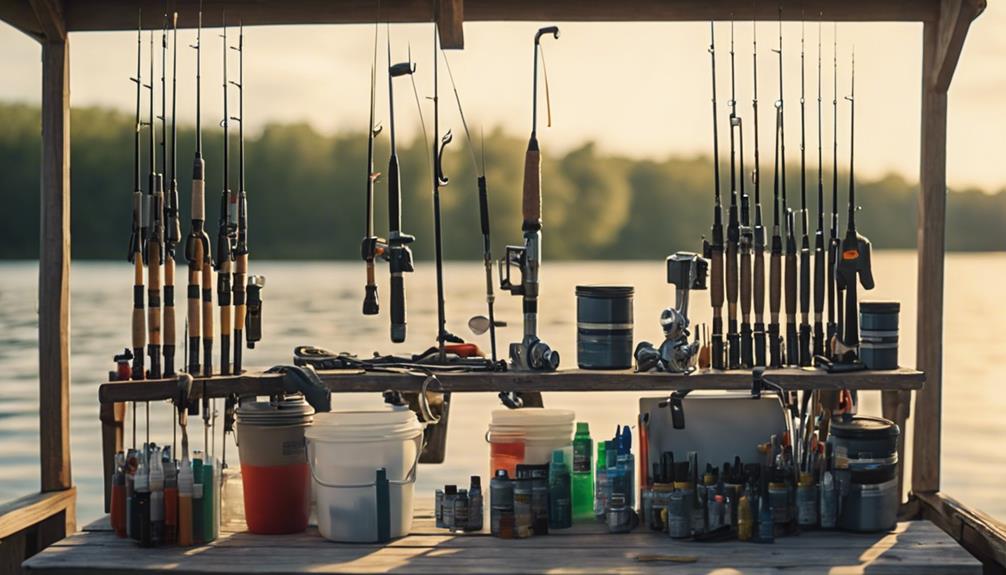Sport fishing is more than just a pastime; it’s a passion for many enthusiasts around the world. Whether you’re casting a line from a boat in the ocean or standing by a tranquil lake, understanding what sport fishing entails can enhance your experience and deepen your appreciation for this engaging activity. In this guide, we’ll explore various aspects of sport fishing, from its definition and techniques to its impact on conservation and community.
Understanding the Basics of Sport Fishing
At its core, sport fishing, also known as recreational fishing, refers to the practice of catching fish for enjoyment rather than for sustenance. This form of fishing is characterized by its focus on the thrill of the catch, the challenge of the sport, and often the pursuit of specific fish species. Unlike commercial fishing, which aims to harvest fish for profit, sport fishing promotes a sustainable approach that emphasizes catch-and-release practices. Sport fishing can take place in various environments, including freshwater lakes, rivers, and oceans, making it accessible to a wide range of enthusiasts.
The Different Types of Sport Fishing
Sport fishing encompasses a variety of techniques and styles, each offering unique challenges and experiences. Some popular types of sport fishing include:
1. Fly Fishing: This technique utilizes artificial flies to lure fish, requiring skill in casting and presentation. Fly fishing is often practiced in freshwater, targeting species like trout and bass.
2. Deep-Sea Fishing: Involves fishing in the open ocean, targeting larger species such as marlin, tuna, and swordfish. This type of sport fishing often requires specialized gear and boats.
3. Ice Fishing: Practiced in colder climates, ice fishing involves drilling holes in frozen lakes and using baited hooks to attract fish.
4. Shore Fishing: This is the most accessible form of sport fishing, allowing anglers to fish from the shoreline without the need for a boat. It’s ideal for catching species like catfish and perch.
Each of these methods requires different skills, equipment, and knowledge of the specific fish species being targeted, offering a diverse range of experiences for anglers.
Essential Equipment for Sport Fishing
Having the right gear is crucial for a successful sport fishing experience. While the specific equipment can vary based on the type of fishing you’re engaging in, some common essentials include:
– Fishing Rod and Reel: The backbone of your setup, the rod and reel must be matched to the type of fish you’re targeting and the fishing method.
– Line: A strong fishing line helps prevent breakage when reeling in fish. Different lines have varying strengths and stretch characteristics.
– Hooks and Bait: Choosing the right hook size and type is essential for catching specific fish, and using live or artificial bait can significantly improve your chances.
– Tackle Box: This handy container keeps all your fishing gear organized, including lures, extra line, and tools.
Investing in quality equipment tailored to your fishing style can enhance your overall experience and success rate when sport fishing.
The Environmental Impact of Sport Fishing
Sport fishing plays a significant role in environmental conservation efforts. Many anglers are passionate about protecting aquatic ecosystems and promoting sustainable fishing practices. Organizations and initiatives focused on catch-and-release encourage anglers to return fish to their habitats, allowing populations to thrive and ensuring future generations can enjoy the sport. Moreover, fees from fishing licenses often go toward conservation programs aimed at preserving natural habitats and fish populations.
Understanding the environmental impact of sport fishing is crucial for responsible angling. By following local regulations and practicing sustainable methods, anglers can contribute positively to their local ecosystems while enjoying the thrill of the sport.
Safety Tips for Sport Fishing
While sport fishing can be a relaxing and enjoyable activity, safety should always be a priority. Here are some essential safety tips for anglers:
1. Check Weather Conditions: Always be aware of changing weather patterns that could impact your fishing trip. Sudden storms can pose dangers at sea or on large lakes.
2. Wear a Life Jacket: If fishing from a boat, it’s crucial to wear a life jacket, especially for children and inexperienced swimmers.
3. Bring a First Aid Kit: Accidents can happen, so having a first aid kit on hand is essential for treating minor injuries.
4. Stay Hydrated and Wear Sunscreen: Fishing often involves long hours in the sun, so drink plenty of water and apply sunscreen to protect your skin.
By prioritizing safety, anglers can ensure a fun and worry-free sport fishing experience.
The Joy of Sport Fishing: Community and Connection
One of the most rewarding aspects of sport fishing is the sense of community it fosters. Anglers often gather for tournaments, workshops, and social events, creating lasting friendships and bonds over their shared love for the sport. Many fishing communities also engage in conservation efforts and local initiatives aimed at protecting waterways and fish populations.
Moreover, sport fishing can be an excellent family activity, allowing parents to introduce their children to nature and outdoor skills. The shared experience of fishing can create cherished memories and instill a love for the environment in future generations.
Conclusion: Embrace the Thrill of Sport Fishing
In conclusion, sport fishing is a multifaceted activity that combines adventure, skill, and a deep connection to nature. Whether you’re a seasoned angler or a beginner, understanding what sport fishing entails can enhance your experience and appreciation for this beloved pastime. By choosing sustainable practices, investing in quality equipment, and prioritizing safety, you can fully embrace the joys of sport fishing. So grab your gear, head to your favorite fishing spot, and immerse yourself in the excitement of the catch. With every cast, you’re not just fishing; you’re partaking in a tradition that spans generations.
By following the tips and insights provided in this guide, you will be well on your way to becoming a knowledgeable and responsible sport fishing enthusiast. Enjoy the thrill, camaraderie, and tranquility that sport fishing offers, and remember to respect the waters and habitats that make it all possible.
